US psychic Ron Bard has spoken out once again via his official Twitter account, warning that the world – specifically Japan – is in great peril, prompting chatter online. This new warning comes after Mr. Bard claimed back in mid-July this year to have foreseen a natural disaster that would occur in Japan “in the next two or three months”, urging people in Japan to follow him on Twitter and prepare for difficult times.
disaster (Page 3)
Living in Japan, it’s easy to take safety and honesty for granted. This is, after all, the country where public trains make ideal spots for a nap.
That said, with over 150 million people in the country, you’re bound to have a few bad apples, such as the lowlifes who’ve decided there’s no better place for a crime spree than the town of Yamamoto, which was hit hard by the massive earthquake and tsunami of 2011.
Ah, Japan. Land of the world’s best vending machines. It’s hard to go anywhere in the country without finding one, including the summit of Mount Fuji. With over five million scattered around the country, someone should put those hunks of metal to work. Three organizations in Japan are doing just that, teaming up to turn the machines into a lifesaving tool in the event of a disaster, and we aren’t talking about the devices giving out free beverages.
The town of Rikuzentakata was once famous for its picturesque shoreline painted with 70,000 pine trees. However, when the ocean waters finally receded after the tsunami of March 11, 2011, only one tree remained. Standing proud at over 80 feet, this single pine battled on for 18 months after the tsunami until finally perishing due to the overwhelming amount of salt that was introduced to the surrounding earth. Although no longer standing tall, the memory of “the miracle pine” will live on thanks to a newly erected monument in its honor.
To mark the second anniversary of the March 11 disaster, student volunteers in Vancouver spent two days dealing with the lingering effects. They collected more than 40 large trash bags of tsunami debris that has been littering beaches on Vancouver Island’s Pacific Rim National Park. Read More
Living in an earthquake-prone country like Japan means constant vigilance in terms of disaster preparedness. Though the Great East Japan Earthquake of 11 March 2011 struck during daylight hours, there’s no guarantee that a disaster of similar magnitude won’t strike at night. Most people keep a flashlight or two at home, however, if power is cut as a result of an earthquake, as groping your way around in the dark while in a panicked state might not be as easy as you think.
Thankfully, Tokyo’s Force Media group has come up with an ingenius solution to this problem. And it’s much more than just a regular-old flashlight…
Read More
Since the Great Tohoku Earthquake of March 2011, scientists have been anxiously watching the massive volcano known as Mt. Fuji for signs of activity. In September of last year, a report was released stating that Mt. Fuji’s magma chamber pressure had risen to a worrisome 1.6 megapascals, which is estimated to be higher than when it last erupted.
According to retired professor Masaki Kimura of Ryukyu University, this and other recent phenomena indicate an eruption of Mt. Fuji should have taken place in 2011 with a four-year margin of error ending in 2015.
With only a few more days until the end of the world as we know it, surely everyone has their survival gear all packed and ready to go. But for those lazy-bones last minute disaster preparers Panasonic feels they have developed the “ultimate disaster survival flashlight”, called Any Battery Light.
As the name suggests, this flashlight can run on any common battery you find lying around, regardless of its size, from AAA to D.
Deep below the ocean lives the squid Chiroteuthis, known in Japan by the name Yurei Ika (Phantom Squid). The Japanese name comes from its ghost-like fluttering and floating movement.
It’s a squid seldom seen by people who don’t have access to a submarine and can visit their habitat 200 to 600 meters beneath the ocean. So when they started turning up in unprecedented numbers around the southeastern coast of Japan, experts became understandably alarmed.
Playstation 2 and Wii owners will likely be familiar with Ōkami, the adventure game set in ancient Japan that features an absolutely gorgeous wood-cut, cell-shaded graphic design.
The game puts players in control of the wolf incarnation of Shintō goddess Amaterasu, and quests them with using a magical, life-giving paintbrush to transform a dark, cursed world into one of plants, trees and flowers, as well as battling a few demons and evil spirits along the way.
On the same theme of restoration, a local website based in Rikuzentakata, a coastal town in Iwate prefecture severely damaged by the March 11 tsunami, has launched a special range of products officially backed by Capcom, the makers of Ōkami, with profits from their sale going to towards rebuilding the town and, much like the game, “restoring nature to its once beautiful state.”
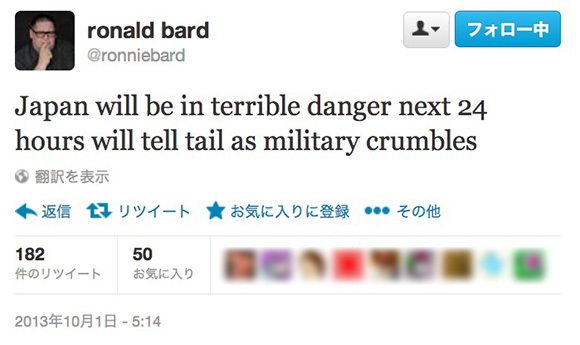
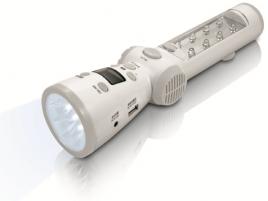
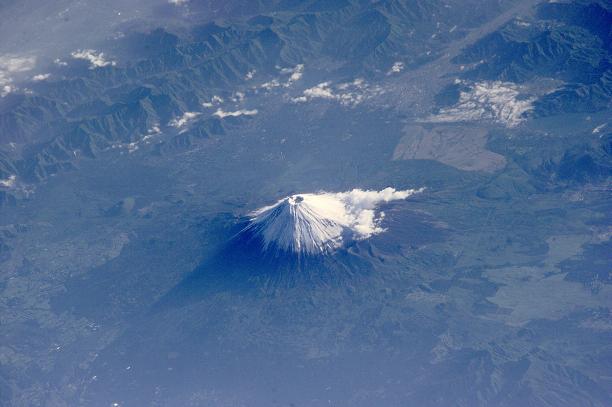
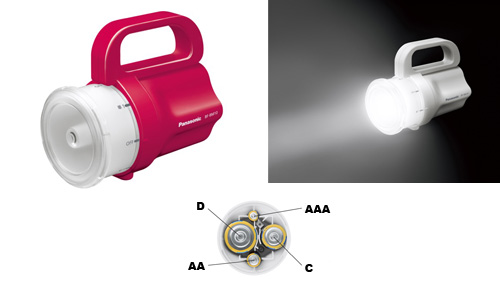
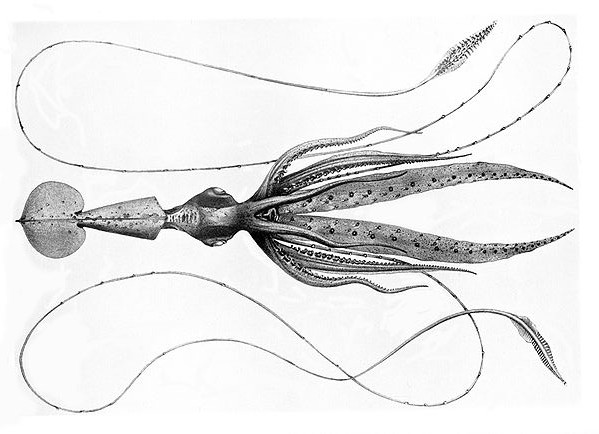

 Swapping seats on Japan’s bullet trains is not allowed, Shinkansen operator says
Swapping seats on Japan’s bullet trains is not allowed, Shinkansen operator says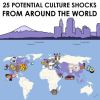 “25 Potential Culture Shocks from around the World” infographic offers tidbits of travel wisdom
“25 Potential Culture Shocks from around the World” infographic offers tidbits of travel wisdom Japan has omurice chocolate, and the weirdest thing isn’t how it tastes
Japan has omurice chocolate, and the weirdest thing isn’t how it tastes Downloads of 39-year-old Guns N’ Roses song increase 12,166 percent thanks to Gundam
Downloads of 39-year-old Guns N’ Roses song increase 12,166 percent thanks to Gundam Yokohama restaurant serves fried axolotl, along with giant isopod, camel, and crocodile
Yokohama restaurant serves fried axolotl, along with giant isopod, camel, and crocodile A look back on 40 years of Japanese schools banning stuff
A look back on 40 years of Japanese schools banning stuff Brand-new theme park in Japan charges foreign tourists 25 percent more than locals for tickets
Brand-new theme park in Japan charges foreign tourists 25 percent more than locals for tickets Japanese balloon jellies, or “Tengu’s Treasure”, are a very unique souvenir
Japanese balloon jellies, or “Tengu’s Treasure”, are a very unique souvenir Ghibli’s Hayao Miyazaki says the anime industry’s problem is that it’s full of anime fans
Ghibli’s Hayao Miyazaki says the anime industry’s problem is that it’s full of anime fans New Jimmy Choo x Sailor Moon collaboration brings anime magic to bags, shoes and accessories
New Jimmy Choo x Sailor Moon collaboration brings anime magic to bags, shoes and accessories Is China’s don’t-go-to-Japan warning affecting the lines at a popular Tokyo gyukatsu restaurant?
Is China’s don’t-go-to-Japan warning affecting the lines at a popular Tokyo gyukatsu restaurant? Three beautiful places to see Japan’s plum blossoms after starting your day in downtown Tokyo
Three beautiful places to see Japan’s plum blossoms after starting your day in downtown Tokyo Cherry blossom forecasts map shows Japan’s OTHER sakura season is starting right now
Cherry blossom forecasts map shows Japan’s OTHER sakura season is starting right now Huge Evangelion Unit-01 head appearing in lights in Japan to celebrate anime’s 30th anniversary
Huge Evangelion Unit-01 head appearing in lights in Japan to celebrate anime’s 30th anniversary Take a trip to Japan’s Dododo Land, the most irritating place on Earth
Take a trip to Japan’s Dododo Land, the most irritating place on Earth New Studio Ghibli stamps leave an impression on your stationery…and your heart
New Studio Ghibli stamps leave an impression on your stationery…and your heart Family Mart releases huge range of cute sweets for Cat Day in Japan
Family Mart releases huge range of cute sweets for Cat Day in Japan Japan’s first all-matcha ramen restaurant is now open in Kyoto【Photos】
Japan’s first all-matcha ramen restaurant is now open in Kyoto【Photos】 Japan’s most famous Mt. Fuji view park cancels cherry blossom festival because of overtourism
Japan’s most famous Mt. Fuji view park cancels cherry blossom festival because of overtourism Starbucks Japan releases new drinkware and goods for Valentine’s Day
Starbucks Japan releases new drinkware and goods for Valentine’s Day Japan releases first official sakura cherry blossom forecast for 2026
Japan releases first official sakura cherry blossom forecast for 2026 Archfiend Hello Kitty appears as Sanrio launches new team-up with Yu-Gi-Oh【Pics】
Archfiend Hello Kitty appears as Sanrio launches new team-up with Yu-Gi-Oh【Pics】 China’s don’t-go-to-Japan warning looks to be affecting tourist crowds on Miyajima
China’s don’t-go-to-Japan warning looks to be affecting tourist crowds on Miyajima Starbucks Japan releases new Frappuccino and latte for Valentine’s Day
Starbucks Japan releases new Frappuccino and latte for Valentine’s Day Studio Ghibli releases new “komorebi” plush toys from Princess Mononoke and Spirited Away
Studio Ghibli releases new “komorebi” plush toys from Princess Mononoke and Spirited Away Yokai are descending upon Tokyo this spring in the latest immersive art experience
Yokai are descending upon Tokyo this spring in the latest immersive art experience Japan’s Naruto theme park now offering real-world version of Minato’s kunai ninja weapon
Japan’s Naruto theme park now offering real-world version of Minato’s kunai ninja weapon Our 52-year-old pole dancing reporter shares his tips for achieving your New Year’s exercise goal
Our 52-year-old pole dancing reporter shares his tips for achieving your New Year’s exercise goal Survey asks foreign tourists what bothered them in Japan, more than half gave same answer
Survey asks foreign tourists what bothered them in Japan, more than half gave same answer Japan’s human washing machines will go on sale to general public, demos to be held in Tokyo
Japan’s human washing machines will go on sale to general public, demos to be held in Tokyo We deeply regret going into this tunnel on our walk in the mountains of Japan
We deeply regret going into this tunnel on our walk in the mountains of Japan Studio Ghibli releases Kodama forest spirits from Princess Mononoke to light up your home
Studio Ghibli releases Kodama forest spirits from Princess Mononoke to light up your home Major Japanese hotel chain says reservations via overseas booking sites may not be valid
Major Japanese hotel chain says reservations via overseas booking sites may not be valid Put sesame oil in your coffee? Japanese maker says it’s the best way to start your day【Taste test】
Put sesame oil in your coffee? Japanese maker says it’s the best way to start your day【Taste test】 No more using real katana for tourism activities, Japan’s National Police Agency says
No more using real katana for tourism activities, Japan’s National Police Agency says Starbucks Japan reveals new sakura drinkware collection, inspired by evening cherry blossoms
Starbucks Japan reveals new sakura drinkware collection, inspired by evening cherry blossoms Updated cherry blossom forecast shows extra-long sakura season for Japan this year
Updated cherry blossom forecast shows extra-long sakura season for Japan this year A look back on 40 years of Japanese schools banning stuff
A look back on 40 years of Japanese schools banning stuff Brand-new theme park in Japan charges foreign tourists 25 percent more than locals for tickets
Brand-new theme park in Japan charges foreign tourists 25 percent more than locals for tickets Japanese balloon jellies, or “Tengu’s Treasure”, are a very unique souvenir
Japanese balloon jellies, or “Tengu’s Treasure”, are a very unique souvenir Ghibli’s Hayao Miyazaki says the anime industry’s problem is that it’s full of anime fans
Ghibli’s Hayao Miyazaki says the anime industry’s problem is that it’s full of anime fans New Jimmy Choo x Sailor Moon collaboration brings anime magic to bags, shoes and accessories
New Jimmy Choo x Sailor Moon collaboration brings anime magic to bags, shoes and accessories Testing out Japan’s portable no-electricity multi-function washing/drying machine【Pics】
Testing out Japan’s portable no-electricity multi-function washing/drying machine【Pics】 Starbucks Japan has a miniature collection, but you’ll need patience to get it
Starbucks Japan has a miniature collection, but you’ll need patience to get it Is China’s don’t-go-to-Japan warning affecting the lines at a popular Tokyo gyukatsu restaurant?
Is China’s don’t-go-to-Japan warning affecting the lines at a popular Tokyo gyukatsu restaurant? Take a trip to Japan’s Dododo Land, the most irritating place on Earth
Take a trip to Japan’s Dododo Land, the most irritating place on Earth 7-Eleven Japan sells freshly baked pizzas…but are they any good?
7-Eleven Japan sells freshly baked pizzas…but are they any good? Chocolate Totoro cream puffs and cakes coming to Japan’s Ghibli bakery for Valentine’s Day【Pics】
Chocolate Totoro cream puffs and cakes coming to Japan’s Ghibli bakery for Valentine’s Day【Pics】